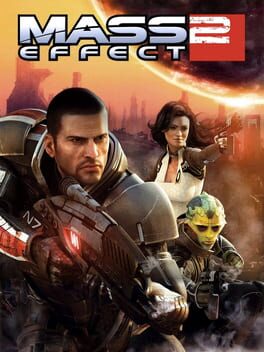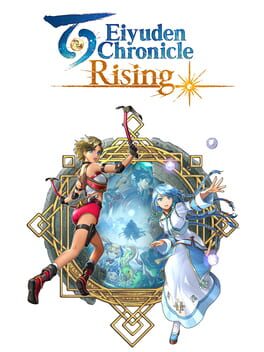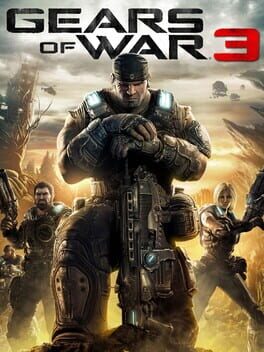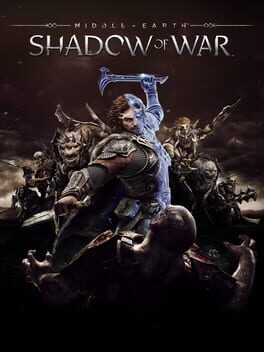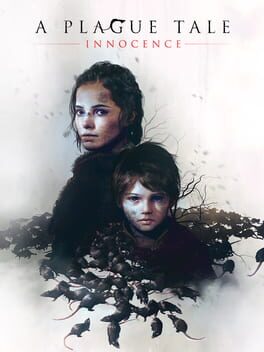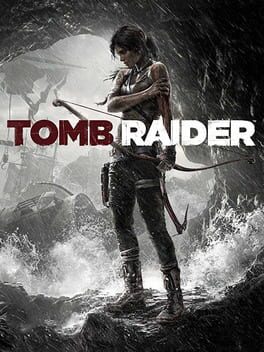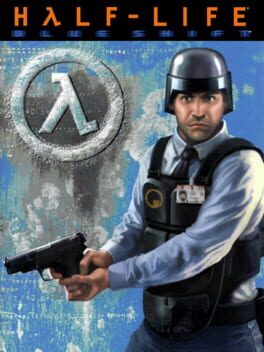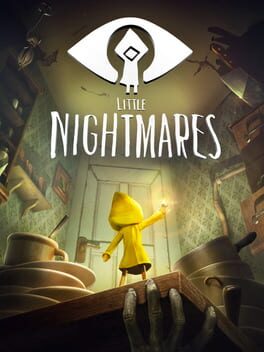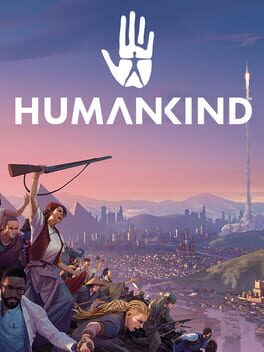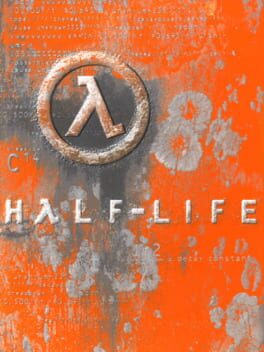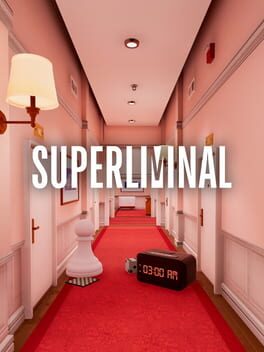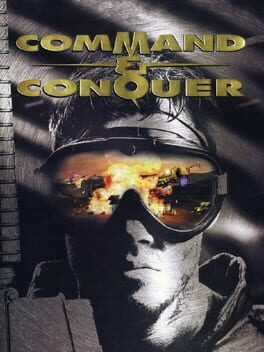Crystar
2010
Mass Effect 2 was something I wished I got to sooner. But I think in the Legendary Edition, I was given the full, genuine intended experience. And as for my thoughts?
Ahem. I think this is one of the greatest games ever made. The amount of effort into the scripting of choice and consequence is something you don't really see in most other games. Shepard manages to be a fantastic protagonist and despite being voiced? They feel like your character and BioWare's protagonist at the same time. All of that is stellar. The cast of characters is colorful, voice acted well, and interesting. It's immersive, it's captivating, it knows how to hit all the right buttons when it needs to, and there's nothing really quite like Mass Effect.
Mass Effect 2 also streamlined many of the systems from Mass Effect 1... and somehow made the game better in the process! Most games nowadays would get flak for dumbing things down so much, but removing the inventory management of ME1, making weapons magazine-based, and improving on the gunplay (with some obvious Gears inspiration) was a novel idea. BioWare deserves all the praise for this space-faring experience. And experience really is the right word for it, because Mass Effect is more than just an RPG. It's stunningly captivating in its own right.
Score: 96
Ahem. I think this is one of the greatest games ever made. The amount of effort into the scripting of choice and consequence is something you don't really see in most other games. Shepard manages to be a fantastic protagonist and despite being voiced? They feel like your character and BioWare's protagonist at the same time. All of that is stellar. The cast of characters is colorful, voice acted well, and interesting. It's immersive, it's captivating, it knows how to hit all the right buttons when it needs to, and there's nothing really quite like Mass Effect.
Mass Effect 2 also streamlined many of the systems from Mass Effect 1... and somehow made the game better in the process! Most games nowadays would get flak for dumbing things down so much, but removing the inventory management of ME1, making weapons magazine-based, and improving on the gunplay (with some obvious Gears inspiration) was a novel idea. BioWare deserves all the praise for this space-faring experience. And experience really is the right word for it, because Mass Effect is more than just an RPG. It's stunningly captivating in its own right.
Score: 96
I decided to play Eiyuden Chronicle Rising in advance of playing Hundred Heroes, which recently released at the time of writing. Rising is a prequel, shorter JRPG that is only above 12-16 hours on average according to Howlongtobeat. That seems about right, and I'll give it credit for being easy to slip into a gaming schedule, unlike most JRPGs that are a huge time sink. Eiyuden has huge Suikoden influence but I had never played Suikoden prior so I went in entirely blind.
Going in entirely blind, I had no idea Eiyuden Chronicle had action-oriented combat as opposed to turn-based so that took me off guard. The combat is fine, but not particularly interesting and gets dull very quickly due to a lack of interesting additions to the mechanics. The main thing that bugs me is that touching enemies hurts you, as if you were playing Castlevania or Mario. I don't really see the point of that in an RPG, and CJ's dodge ability sometimes dodges you right into enemies and damages you, which is pretty annoying. You get two other party members as well, Garoo and Isha, who you can swap to via hitting the face buttons. If you swap to them mid-combat you can execute Link Attacks. You can chain Link Attacks together for big damage, and eventually, you'll get bigger chains as the town grows. Unfortunately, Link Attacks are the only interesting thing about the combat and aren't worth using against anything that isn't a Boss or higher-leveled enemy. There's no incentive to use them beyond the damage you get. Link Attacks also mean you don't really get party combat like other JRPGs, and only see one character on-screen at a time in dungeons. It drains some potential personality and flavor from the game. And since Garoo is too slow and Isha's kit is poorly designed due to only having 3 orbs at a time and a reload delay, along with useless traversal abilities, CJ is the only character worth using.
The Boss are a joke by the way. They're all easy, even the final one, and can easily be cheesed by spamming Link Attacks so long as you're around the same level. Even the annoying bosses that will juggle you with their attack spam like the Mantor Wyrm and final boss are still easily defeated if you have potions on you.
Potions and other items are easy to farm, making it easy to snowball your characters and max your weapons. CJ easily plowed through everything sent her way once I got her axe maxed out. I do like the upgrade system, since it reminds of Dark Souls a bit with how it's handled.
Let's talk about writing. CJ is a plucky protagonist as you may expect, Garoo is the gruff "Eh, I guess I'll come along" guy, and Isha is the soft but sometimes cold mage. They're fine on a base level, and they at least have personality, but the plot doesn't do them much justice. Much of the plot is railroaded near the end in the form of a diary as a plot device to drop exposition on you at a time that feels like its out of the blue. Why are you mentioning an Empire all of a sudden? The League of Nations? Like WWI? Where is all of this coming from? Why is this being mentioned NOW, right before the final dungeon? I get this game is supposed to be a small prequel but you need to build a plot more naturally than this. You can't just shove a plate of plot in front of me and tell me to dine on it. Give me an appetizer and some wine first, preferably. The plot just ends up being a mess and they try really hard to get you to feel something but it doesn't work as much as you'd maybe want it to. The game also ends very abruptly, and when the credits started rolling, I was genuinely a bit surprised that they did. "Oh, that's it? Okay then."
Also, I have to say, the humor in this game just falls flat most of the time. I never laughed. Maybe it's not my type of humor, but the jokes range from just falling flat, being too cheesy, cliche, weird, or downright cringy.
And there are some WEIRD jokes in this game. There's one early about "toilet training" that was just weird. There were multiple jokes about Isha and CJ's dirty clothes being sniffed as well. There were jokes about CJ's outfit (the gal on the left in the cover image) and how revealing it is. I'm not sure if that's a mistranslation issue, a localization issue, or just simply the writers being... odd, but I do know that it made me uncomfortable. I usually have a high tolerance for that stuff, but need I mention that CJ and Isha are 16?
Don't believe me? Watch this to the end. Am I crazy for thinking that dialogue is really weird? https://www.youtube.com/watch?si=gTTpktA5xXRgqO5Q&t=110&v=DVA_7b4vO68&feature=youtu.be
There are some other mistranslations too. CJ after a rest says "One more time!" which doesn't quite make sense..? And I saw one character say "than more fool me" in dialogue.
Building the town is one of the things you're probably curious about, as a JRPG inspired by Suikoden. All of the quests that help build the town amount to fetch quests. They somehow manage to be boring and satisfying at the same time. Boring because, well, they're all fetch quests with barely any variation. Satisfying because it is nice to see the town advance and change over time, along with the shop stocks. The game's excellent fast travel mechanic makes it bearable, allowing you to teleport to specific points in dungeons and even the town itself. I will say that the first time I leveled up a shop I was confused, since it said "Level Up" on the screen. I didn't see my characters Level Up, so I then realized the game meant the shop leveled up. I wish there was a better distinction there. Because each time it happened I had to flick my eyes over to the top left to see if it meant my characters or the shop itself.
Is Eiyuden Chronicle Rising good? No.
Is Eiyuden Chronicle Rising bad? No.
Would I play it again? No.
Do I regret playing it? No.
It's an okay game. I wouldn't recommend playing it unless you really end up liking Hundred Heroes and want a little bit more of that world fleshed out, I guess, from the little lore it has. Otherwise, it's hard to recommend.
The music slaps though and honestly I didn't mind running through the Quarry or Forest just to hear it!
Score: 74
Going in entirely blind, I had no idea Eiyuden Chronicle had action-oriented combat as opposed to turn-based so that took me off guard. The combat is fine, but not particularly interesting and gets dull very quickly due to a lack of interesting additions to the mechanics. The main thing that bugs me is that touching enemies hurts you, as if you were playing Castlevania or Mario. I don't really see the point of that in an RPG, and CJ's dodge ability sometimes dodges you right into enemies and damages you, which is pretty annoying. You get two other party members as well, Garoo and Isha, who you can swap to via hitting the face buttons. If you swap to them mid-combat you can execute Link Attacks. You can chain Link Attacks together for big damage, and eventually, you'll get bigger chains as the town grows. Unfortunately, Link Attacks are the only interesting thing about the combat and aren't worth using against anything that isn't a Boss or higher-leveled enemy. There's no incentive to use them beyond the damage you get. Link Attacks also mean you don't really get party combat like other JRPGs, and only see one character on-screen at a time in dungeons. It drains some potential personality and flavor from the game. And since Garoo is too slow and Isha's kit is poorly designed due to only having 3 orbs at a time and a reload delay, along with useless traversal abilities, CJ is the only character worth using.
The Boss are a joke by the way. They're all easy, even the final one, and can easily be cheesed by spamming Link Attacks so long as you're around the same level. Even the annoying bosses that will juggle you with their attack spam like the Mantor Wyrm and final boss are still easily defeated if you have potions on you.
Potions and other items are easy to farm, making it easy to snowball your characters and max your weapons. CJ easily plowed through everything sent her way once I got her axe maxed out. I do like the upgrade system, since it reminds of Dark Souls a bit with how it's handled.
Let's talk about writing. CJ is a plucky protagonist as you may expect, Garoo is the gruff "Eh, I guess I'll come along" guy, and Isha is the soft but sometimes cold mage. They're fine on a base level, and they at least have personality, but the plot doesn't do them much justice. Much of the plot is railroaded near the end in the form of a diary as a plot device to drop exposition on you at a time that feels like its out of the blue. Why are you mentioning an Empire all of a sudden? The League of Nations? Like WWI? Where is all of this coming from? Why is this being mentioned NOW, right before the final dungeon? I get this game is supposed to be a small prequel but you need to build a plot more naturally than this. You can't just shove a plate of plot in front of me and tell me to dine on it. Give me an appetizer and some wine first, preferably. The plot just ends up being a mess and they try really hard to get you to feel something but it doesn't work as much as you'd maybe want it to. The game also ends very abruptly, and when the credits started rolling, I was genuinely a bit surprised that they did. "Oh, that's it? Okay then."
Also, I have to say, the humor in this game just falls flat most of the time. I never laughed. Maybe it's not my type of humor, but the jokes range from just falling flat, being too cheesy, cliche, weird, or downright cringy.
And there are some WEIRD jokes in this game. There's one early about "toilet training" that was just weird. There were multiple jokes about Isha and CJ's dirty clothes being sniffed as well. There were jokes about CJ's outfit (the gal on the left in the cover image) and how revealing it is. I'm not sure if that's a mistranslation issue, a localization issue, or just simply the writers being... odd, but I do know that it made me uncomfortable. I usually have a high tolerance for that stuff, but need I mention that CJ and Isha are 16?
Don't believe me? Watch this to the end. Am I crazy for thinking that dialogue is really weird? https://www.youtube.com/watch?si=gTTpktA5xXRgqO5Q&t=110&v=DVA_7b4vO68&feature=youtu.be
There are some other mistranslations too. CJ after a rest says "One more time!" which doesn't quite make sense..? And I saw one character say "than more fool me" in dialogue.
Building the town is one of the things you're probably curious about, as a JRPG inspired by Suikoden. All of the quests that help build the town amount to fetch quests. They somehow manage to be boring and satisfying at the same time. Boring because, well, they're all fetch quests with barely any variation. Satisfying because it is nice to see the town advance and change over time, along with the shop stocks. The game's excellent fast travel mechanic makes it bearable, allowing you to teleport to specific points in dungeons and even the town itself. I will say that the first time I leveled up a shop I was confused, since it said "Level Up" on the screen. I didn't see my characters Level Up, so I then realized the game meant the shop leveled up. I wish there was a better distinction there. Because each time it happened I had to flick my eyes over to the top left to see if it meant my characters or the shop itself.
Is Eiyuden Chronicle Rising good? No.
Is Eiyuden Chronicle Rising bad? No.
Would I play it again? No.
Do I regret playing it? No.
It's an okay game. I wouldn't recommend playing it unless you really end up liking Hundred Heroes and want a little bit more of that world fleshed out, I guess, from the little lore it has. Otherwise, it's hard to recommend.
The music slaps though and honestly I didn't mind running through the Quarry or Forest just to hear it!
Score: 74
2011
Is Gears written well? No.
Does it need to be? No.
Did some of the jokes in Gears age well? No.
Is Marcus a good character? Yes!
Is the game still fun? Yes.
Gears is at its heart just an action flick as a third-person shooter, and it sets out what it tries to do perfectly. It's a good time, and respects your time as well. It's a damn good third-person shooter, and the third entry in the series has refined the gameplay enough that it firmly sets itself as the best one I've played in the series thus far. Marcus has his characterization hit a level that is really enjoyable, although the overall plot isn't that complex or intuitive. Some of the jokes involving Sam and Anya, along with some of Baird's one-liners, don't really age well though and just come across as weird at best or borderline cringy at worst.
But Gears isn't supposed to be a pinnacle of writing. It's a pinnacle of gameplay and fun times, and it does that well, so it deserves to be praised for doing that well.
I do want to expand on the Action flick point because it feels very deliberate and that's what I love about Gears. The way the mission structure is and the way it flows feels very intentionally like an action film. Like the way things flow into the next, the way boss fights happen, the places where boss fights happen, the spots where spectacle shots and cinematic shots are added, etc. In that way, I have to give them a lot of credit for that in the way it was designed.
I'll review RAAM's Shadow as well here since I don't like that it'd take up a separate entry on my Backlogged. RAAM's Shadow was also a fun DLC, but it was marred for me by bugs, namely in Chapter 4. There's a section where Zeta exits a parking garage into the next segment, and the game automatically failed as soon as this happened for me, saying that "Drone has died". Who the hell is Drone?! And then upon taking the rooftops, both Kim and Valera straight-up disappeared from the game. Barrick was speaking to them both but they both were silent and were nowhere to be seen. So when me and Tai inevitably died during an ambush encounter in front of City Hall, I got another bug where I couldn't reload from a checkpoint. And I had to redo the entirety of Chapter 4. Not fun. But the rest of the DLC was fun, though. It had a lot of Gears 1 vibes (which likely was intentional because of when its set) and reminded me of how much I dislike E-holes as a mechanic, but if you want more Gears, it's hard to argue with what it offers.
Score: 89
Does it need to be? No.
Did some of the jokes in Gears age well? No.
Is Marcus a good character? Yes!
Is the game still fun? Yes.
Gears is at its heart just an action flick as a third-person shooter, and it sets out what it tries to do perfectly. It's a good time, and respects your time as well. It's a damn good third-person shooter, and the third entry in the series has refined the gameplay enough that it firmly sets itself as the best one I've played in the series thus far. Marcus has his characterization hit a level that is really enjoyable, although the overall plot isn't that complex or intuitive. Some of the jokes involving Sam and Anya, along with some of Baird's one-liners, don't really age well though and just come across as weird at best or borderline cringy at worst.
But Gears isn't supposed to be a pinnacle of writing. It's a pinnacle of gameplay and fun times, and it does that well, so it deserves to be praised for doing that well.
I do want to expand on the Action flick point because it feels very deliberate and that's what I love about Gears. The way the mission structure is and the way it flows feels very intentionally like an action film. Like the way things flow into the next, the way boss fights happen, the places where boss fights happen, the spots where spectacle shots and cinematic shots are added, etc. In that way, I have to give them a lot of credit for that in the way it was designed.
I'll review RAAM's Shadow as well here since I don't like that it'd take up a separate entry on my Backlogged. RAAM's Shadow was also a fun DLC, but it was marred for me by bugs, namely in Chapter 4. There's a section where Zeta exits a parking garage into the next segment, and the game automatically failed as soon as this happened for me, saying that "Drone has died". Who the hell is Drone?! And then upon taking the rooftops, both Kim and Valera straight-up disappeared from the game. Barrick was speaking to them both but they both were silent and were nowhere to be seen. So when me and Tai inevitably died during an ambush encounter in front of City Hall, I got another bug where I couldn't reload from a checkpoint. And I had to redo the entirety of Chapter 4. Not fun. But the rest of the DLC was fun, though. It had a lot of Gears 1 vibes (which likely was intentional because of when its set) and reminded me of how much I dislike E-holes as a mechanic, but if you want more Gears, it's hard to argue with what it offers.
Score: 89
The follow-up to Shadow of Mordor, Shadow of War is something I thoroughly enjoyed as much as the first one, thankfully. While Shadow of War is much more polished than the first game and improves on it some ways, it also is much too flawed to be a significant improvement.
Shadow of War's story is good at best, fine at worst. Shadow of Mordor's short mission style is still a thing in this game, but now it is fragmented across several different characters in a GTA-like mission structure. Each character has their own set of main story quests that can be completed. Shadow of War seems more open-ended and you can go about much of the meat of the game in any order you'd like. The writing of this story has a bittersweet and awesome payoff but as a complete package, the mission structure does make it a slight downgrade from Shadow of Mordor overall, but only very slightly.
If you enjoyed Shadow of Mordor's gameplay you'll like Shadow of War's as well. The Skill system is a bit more interesting and allows you to pick and choose, shaping your build for Talion to however you wish. I wasn't a fan of the hardcore shift to the tired loot system that so many AAA action games love to do for no explicit reason (looking at you God of War), but that doesn't mean it's a bad thing. What I do miss is inserting Runes into your weapons and armor, as opposed to just having a single Gem with a stat boost in this game. It removes depth from a system that was a little more interesting, in my opinion.
I think the major flaw holding this game back is enemy design. With the way Orcs roll their passive effects and immunities, it makes every boss encounter feel really unique and interesting! Most of the time. There are times, mostly towards the end of the game, where you're just kinda at a loss of how to beat a really spongy enemy if you don't have intel. I mean, what am I supposed to do against an enemy that's immune to executions and ranged attacks who is holding a shield and also immune to vaulting? A lot of later game enemy encounters are just exhausting to deal with, especially when Talion is surrounded. It makes the Shadow Wars epilogue in particular pretty difficult.
It is most noticeable when fighting Overlords. In the boss room, Talion is vastly outnumbered while fighting a pretty strong boss. Since the minions constantly respawn in this enclosed space, the boss is really difficult to deal with on the fly. And it's where another issue with the combat shows itself - there's no reliable way to heal. I mean, jeez, even Dark Souls isn't afraid to give you a way to heal yourself mid-combat. Draining enemies is fine, but since you can get interrupted while draining or have to expend a finisher to do so, Talion doesn't have a reliable healing method. This makes many of the more difficult encounters very grueling to handle, especially when there isn't anyone to drain. I summoned allies in some of these just to drain them because I didn't have anyone to drain! I know you can put lifesteal on Talion's weapon - but this goes to my problem with the change away from runes for gems instead. Having only 1 gem per weapon means I'd have to sacrifice damage on my sword for lifesteal. Which isn't reliable in itself either.
These though, are very nitipicky. Shadow of War excels at doing the Ubisoft formula better than Ubisoft by making its open-world not feel exhausting to delve into. I managed to grab all the collectables and didn't feel like I wasted too much time doing it. I was actually surprised I had finished them when the game said I did. And no, I don't care that it messes with the canon of Middle-Earth. Who cares? We still enjoy Star Wars games that are no longer canon, don't we, like KOTOR or The Force Unleashed? So why can't Shadow of Mordor/War do the same?
I came away from Shadow of War feeling satisfied as much as I did with Shadow of Mordor. A "wow that was awesome" but nothing really blew me away. It was more polished Shadow of Mordor, and that's cool, but it makes only marginally better as a sequel, and the new war mechanics aren't in-depth or interesting enough to really make it a significant upgrade. Nonetheless, Shadow of War is a hugely underrated game.
Score: 90
Shadow of War's story is good at best, fine at worst. Shadow of Mordor's short mission style is still a thing in this game, but now it is fragmented across several different characters in a GTA-like mission structure. Each character has their own set of main story quests that can be completed. Shadow of War seems more open-ended and you can go about much of the meat of the game in any order you'd like. The writing of this story has a bittersweet and awesome payoff but as a complete package, the mission structure does make it a slight downgrade from Shadow of Mordor overall, but only very slightly.
If you enjoyed Shadow of Mordor's gameplay you'll like Shadow of War's as well. The Skill system is a bit more interesting and allows you to pick and choose, shaping your build for Talion to however you wish. I wasn't a fan of the hardcore shift to the tired loot system that so many AAA action games love to do for no explicit reason (looking at you God of War), but that doesn't mean it's a bad thing. What I do miss is inserting Runes into your weapons and armor, as opposed to just having a single Gem with a stat boost in this game. It removes depth from a system that was a little more interesting, in my opinion.
I think the major flaw holding this game back is enemy design. With the way Orcs roll their passive effects and immunities, it makes every boss encounter feel really unique and interesting! Most of the time. There are times, mostly towards the end of the game, where you're just kinda at a loss of how to beat a really spongy enemy if you don't have intel. I mean, what am I supposed to do against an enemy that's immune to executions and ranged attacks who is holding a shield and also immune to vaulting? A lot of later game enemy encounters are just exhausting to deal with, especially when Talion is surrounded. It makes the Shadow Wars epilogue in particular pretty difficult.
It is most noticeable when fighting Overlords. In the boss room, Talion is vastly outnumbered while fighting a pretty strong boss. Since the minions constantly respawn in this enclosed space, the boss is really difficult to deal with on the fly. And it's where another issue with the combat shows itself - there's no reliable way to heal. I mean, jeez, even Dark Souls isn't afraid to give you a way to heal yourself mid-combat. Draining enemies is fine, but since you can get interrupted while draining or have to expend a finisher to do so, Talion doesn't have a reliable healing method. This makes many of the more difficult encounters very grueling to handle, especially when there isn't anyone to drain. I summoned allies in some of these just to drain them because I didn't have anyone to drain! I know you can put lifesteal on Talion's weapon - but this goes to my problem with the change away from runes for gems instead. Having only 1 gem per weapon means I'd have to sacrifice damage on my sword for lifesteal. Which isn't reliable in itself either.
These though, are very nitipicky. Shadow of War excels at doing the Ubisoft formula better than Ubisoft by making its open-world not feel exhausting to delve into. I managed to grab all the collectables and didn't feel like I wasted too much time doing it. I was actually surprised I had finished them when the game said I did. And no, I don't care that it messes with the canon of Middle-Earth. Who cares? We still enjoy Star Wars games that are no longer canon, don't we, like KOTOR or The Force Unleashed? So why can't Shadow of Mordor/War do the same?
I came away from Shadow of War feeling satisfied as much as I did with Shadow of Mordor. A "wow that was awesome" but nothing really blew me away. It was more polished Shadow of Mordor, and that's cool, but it makes only marginally better as a sequel, and the new war mechanics aren't in-depth or interesting enough to really make it a significant upgrade. Nonetheless, Shadow of War is a hugely underrated game.
Score: 90
I wanted to like Plague Tale about as much as I did Hellblade. By all means, it's not a game I should enjoy. It packs some of my least favorite things about gaming into one - Stealth segments, Cinematic Playstation-y over the shoulder design, and puzzles.
But I ended up enjoying Plague Tale... to a certain point. Around Chapter 13 or so, Plague Tale's flaws began to show. The writing of the game fell off a cliff, and ran into the realm of nonsensical with an ending that doesn't really do much for me, personally. And that includes the after-credits scene as well. I suppose one could argue that the ending didn't need to be too complex. Sure. I'm not talking about the writing when it comes to that.
Yes, Plague Tale's writing falls off a cliff. But the gameplay mechanics Plague Tale begins to rely on in the latter chapters expose the game's flawed design. It is an unpolished mess at worst, and frustratingly difficult to wrestle against at times. Hugo gets a mechanic late in the game that feels janky to use until he gets immunity to it later. Later chapters double down on the weak combat as well. I don't like Stealth or Puzzles much, but that's the strong suit of the game, and I was disappointed that they ditched those in the later chapters. Stealth is also hit or miss at times. There were times where enemies just wouldn't hear the rocks I threw to distract them, even when hitting a box of armor, and several rocks were needed to draw their attention. Amicia's sling isn't the best thing to control either, and you have to wonder how she'd fare against Goliath if these were the mechanics she had to work with.
But all of the game's unpolished jank gameplay-wise is topped off by quite possibly the most poorly designed boss fight I've ever experienced. I can't spoil much, but boiling down a boss fight to multiple fail states and one-shotting you in what essentially becomes a floor is lava situation is quite annoying. Yes, I did it anyway. It doesn't mean it needed to be designed that way.
I've dogged on this game a lot, but it just really exemplifies my problem with "Cinematic PlayStation-y" type of games. You bank on your cinematography and storytelling to the point where you forget to make a VIDEO GAME, which should be a priority first before your storytelling. Plague Tale just isn't fun to play and many times during the story I wondered how much more I'd enjoy it if it were a show or movie instead.
I have some gripes with some characters too. They're all kids so I can't critique it much. Hugo is really frustrating and annoying when it comes to how he's written - he acts like a kid should, but it doesn't change the fact that he can be really grating in many of the important story beats. And Melie is just so... ugh. Bland, and unlikable. I didn't trust Melie at all, even when we got to the end of the game.
Amicia on the other hand is fantastic. Her character growth is wonderful, she's well-spoken, she's courageous, she's everything you really want from a female protagonist. Getting good female protagonists nowadays is rather rare, and Amicia should be one of the standouts.
TL;DR: To wrap up, Plague Tale is a nice experience despite how much I've ragged on it. Please don't let that turn you away. I'm just expressing my personal gripes with this style of game because I really want to love Plague Tale, and I do like it, but I don't love it. And I wanted to love it as a big fan of historical fiction, as well as Amicia's characterization.
Score: 80
But I ended up enjoying Plague Tale... to a certain point. Around Chapter 13 or so, Plague Tale's flaws began to show. The writing of the game fell off a cliff, and ran into the realm of nonsensical with an ending that doesn't really do much for me, personally. And that includes the after-credits scene as well. I suppose one could argue that the ending didn't need to be too complex. Sure. I'm not talking about the writing when it comes to that.
Yes, Plague Tale's writing falls off a cliff. But the gameplay mechanics Plague Tale begins to rely on in the latter chapters expose the game's flawed design. It is an unpolished mess at worst, and frustratingly difficult to wrestle against at times. Hugo gets a mechanic late in the game that feels janky to use until he gets immunity to it later. Later chapters double down on the weak combat as well. I don't like Stealth or Puzzles much, but that's the strong suit of the game, and I was disappointed that they ditched those in the later chapters. Stealth is also hit or miss at times. There were times where enemies just wouldn't hear the rocks I threw to distract them, even when hitting a box of armor, and several rocks were needed to draw their attention. Amicia's sling isn't the best thing to control either, and you have to wonder how she'd fare against Goliath if these were the mechanics she had to work with.
But all of the game's unpolished jank gameplay-wise is topped off by quite possibly the most poorly designed boss fight I've ever experienced. I can't spoil much, but boiling down a boss fight to multiple fail states and one-shotting you in what essentially becomes a floor is lava situation is quite annoying. Yes, I did it anyway. It doesn't mean it needed to be designed that way.
I've dogged on this game a lot, but it just really exemplifies my problem with "Cinematic PlayStation-y" type of games. You bank on your cinematography and storytelling to the point where you forget to make a VIDEO GAME, which should be a priority first before your storytelling. Plague Tale just isn't fun to play and many times during the story I wondered how much more I'd enjoy it if it were a show or movie instead.
I have some gripes with some characters too. They're all kids so I can't critique it much. Hugo is really frustrating and annoying when it comes to how he's written - he acts like a kid should, but it doesn't change the fact that he can be really grating in many of the important story beats. And Melie is just so... ugh. Bland, and unlikable. I didn't trust Melie at all, even when we got to the end of the game.
Amicia on the other hand is fantastic. Her character growth is wonderful, she's well-spoken, she's courageous, she's everything you really want from a female protagonist. Getting good female protagonists nowadays is rather rare, and Amicia should be one of the standouts.
TL;DR: To wrap up, Plague Tale is a nice experience despite how much I've ragged on it. Please don't let that turn you away. I'm just expressing my personal gripes with this style of game because I really want to love Plague Tale, and I do like it, but I don't love it. And I wanted to love it as a big fan of historical fiction, as well as Amicia's characterization.
Score: 80
2013
I've played Tomb Raider 2013 three times. Not because I love it or even like it. I played it once on PS3 when it launched, then again on Xbox One when it became free on Games with Gold. (Yes, I was one of the rare people who switched from PS3 to Xbox One) And now on PC. Why is that?
The story kept going over my head. Each time, if you asked me what the game was about, I wouldn't be able to tell you. Now that I've replayed it, I understand why now that I'm a bit older and can retain it better. It's a below-average Indiana Jones plot mixed with a D-list crash survivor flick plot held up by mediocre writing. Lara herself is written well, but her friends aren't - and it feels like the writers really wanted to kill most of them off since they didn't enjoy writing for them. Roth was one of the more interesting side characters but they didn't really use him as much as I wanted.
But on a third replay, I've grown to love this take on Lara way more than I used to. See, playing the OG Tomb Raider trilogy made me see Lara as a badass. A staple of video game badasses. So I was originally disappointed in this take on Lara since it felt like she was living in the shadow of a cooler, more interesting Lara. However, with the timelines intended to be unified now, this Lara IS that Lara now. 2013 Lara is the same Lara that has always existed since the 90s. This is her origin story, and it works so well with that in mind, retroactively giving this game a boost in its story. The adventures and trauma Lara goes through are now part of a bigger whole, and she no longer feels like she's living up to insurmountable expectations from the audience. Lara is perfectly characterized with the notion of a unified timeline in mind.
Tomb Raider 2013 got flak at the time for QTEs, but on a replay they're not as overbearing as I thought. I did crank the game down to easy to focus on the story since I've already played the game twice before. I know how Tomb Raider plays already. I just wanted the story and characterization this time and that was my goal with a third replay.
Speaking of gameplay, the level design and systems are pretty solid. Nothing too crazy but it's not 100% polished, and it's easy to tell. There was a few hit detection issues with latching onto walls at times, as well as in combat. Many times I felt like my arrows were hitting an enemy directly and I was whiffing it. I also get that Lara is inexperienced with guns, but does every gun's spread have to be as big as the moon?
It's a pretty good game. And no, I don't intend on playing it again. Not anytime soon at least. But I do like it more than I originally did.
Score: 83
The story kept going over my head. Each time, if you asked me what the game was about, I wouldn't be able to tell you. Now that I've replayed it, I understand why now that I'm a bit older and can retain it better. It's a below-average Indiana Jones plot mixed with a D-list crash survivor flick plot held up by mediocre writing. Lara herself is written well, but her friends aren't - and it feels like the writers really wanted to kill most of them off since they didn't enjoy writing for them. Roth was one of the more interesting side characters but they didn't really use him as much as I wanted.
But on a third replay, I've grown to love this take on Lara way more than I used to. See, playing the OG Tomb Raider trilogy made me see Lara as a badass. A staple of video game badasses. So I was originally disappointed in this take on Lara since it felt like she was living in the shadow of a cooler, more interesting Lara. However, with the timelines intended to be unified now, this Lara IS that Lara now. 2013 Lara is the same Lara that has always existed since the 90s. This is her origin story, and it works so well with that in mind, retroactively giving this game a boost in its story. The adventures and trauma Lara goes through are now part of a bigger whole, and she no longer feels like she's living up to insurmountable expectations from the audience. Lara is perfectly characterized with the notion of a unified timeline in mind.
Tomb Raider 2013 got flak at the time for QTEs, but on a replay they're not as overbearing as I thought. I did crank the game down to easy to focus on the story since I've already played the game twice before. I know how Tomb Raider plays already. I just wanted the story and characterization this time and that was my goal with a third replay.
Speaking of gameplay, the level design and systems are pretty solid. Nothing too crazy but it's not 100% polished, and it's easy to tell. There was a few hit detection issues with latching onto walls at times, as well as in combat. Many times I felt like my arrows were hitting an enemy directly and I was whiffing it. I also get that Lara is inexperienced with guns, but does every gun's spread have to be as big as the moon?
It's a pretty good game. And no, I don't intend on playing it again. Not anytime soon at least. But I do like it more than I originally did.
Score: 83
I honestly don't know what to say. Not because it blew me away or it's really bad. But because it's just... fine?
If the phrase "this is one of the games of all time" were to be ever used unironically, then this might be applicable for it. It feels like a little mission pack for Half-Life 1, with some little annoying platforming segments to boot as well. The game's story is also very muted as well and the only times it's ever interesting is when it's inserting interesting beats or references to Half-Life 1.
But because of that I can't rate it badly and I can't rate it good either. So right in the middle of the 70s it is.
Score: 75
If the phrase "this is one of the games of all time" were to be ever used unironically, then this might be applicable for it. It feels like a little mission pack for Half-Life 1, with some little annoying platforming segments to boot as well. The game's story is also very muted as well and the only times it's ever interesting is when it's inserting interesting beats or references to Half-Life 1.
But because of that I can't rate it badly and I can't rate it good either. So right in the middle of the 70s it is.
Score: 75
1995
Chrono Trigger is probably one of the best games ever made, and it is definitely one of the best JRPG ever made. The way it handles time travel is unique, fun, and somehow not that confusing to wrap your head around. It does minor things so well with the core theme of time travel, such as heading back in time to manipulate events for side quests. It does a lot of interesting things that you don't see in many games honestly, and the gameplay is actually fun to boot. Also unlike a lot of old JRPGs, I didn't feel like I needed a walkthrough for a majority of the game, and 70% of the time I was able to do things. (I'm glad I did have a walkthrough though, so I could take advantage of those Sealed Chests optimally)
I don't have any problems with Chrono Trigger, but I suppose my main critique would be that I wasn't really in love with any of the party members. I like them, but they aren't as engaging as even other old JRPGs. But I don't think it detracts enough from the game to really give it flak for that.
I also have issues with the PC port but I can't dock points from the game itself. I had to revert to a 2018 build because the 2023 build has a weird stuttering bug when you walk diagonally. The port also doesn't have proper button prompts for PlayStation controllers, so I wasn't sure what to press at some points of the game. When it came to the part where you have to play Simon Says in the fair to get (spoiler item) I kept failing and just grinded for 60K to buy it instead.
But even that doesn't change the fact that Chrono Trigger is one of the greats and a must-play JRPG.
Score: 95
I don't have any problems with Chrono Trigger, but I suppose my main critique would be that I wasn't really in love with any of the party members. I like them, but they aren't as engaging as even other old JRPGs. But I don't think it detracts enough from the game to really give it flak for that.
I also have issues with the PC port but I can't dock points from the game itself. I had to revert to a 2018 build because the 2023 build has a weird stuttering bug when you walk diagonally. The port also doesn't have proper button prompts for PlayStation controllers, so I wasn't sure what to press at some points of the game. When it came to the part where you have to play Simon Says in the fair to get (spoiler item) I kept failing and just grinded for 60K to buy it instead.
But even that doesn't change the fact that Chrono Trigger is one of the greats and a must-play JRPG.
Score: 95
2017
Little Nightmares is an indie game about the horrors of childhood, amplified into the way a child sees them, overexaggerating them with a Tim Burton-ish aesthetic. At least that's what I think it's about. My problem with Little Nightmares is that I leave the game wondering what it even means. What is Little Nightmares supposed to be? Was it worth my time? What do I get out of this? I certainly didn't enjoy my time with it, but it wasn't offensive either. The game's design of Stealth, Platforming, and Puzzles are rather unintuitive and bland, even at best, and the suspense you get isn't particularly great either, for many of the chase scenes falter due to clumsily made platforming at times. Ultimately, I walk away feeling remarkably underwhelmed.
Score: 71
Score: 71
2021
I'm actually a big Civ fan, so I'm always eager to try different takes on the formula. When Humankind first launched, I was not a fan. But since it was included in this month's Humble Choice bundle with all the DLC, I thought I'd give it another shot. And I still don't like it, unfortunately.
It does a few things better than Civ, the main one being its events system, a mechanic that Civ desperately needs to add some needed flavor to playthroughs. However, everything else just feels like it's trying to capture what Civ does, but half-stepping their way towards that. Combat is needlessly complex. Diplomacy is utterly broken. Your units will get attacked at random by other Civs despite not being at war and you can't quite understand why. The mechanic for settling cities is a needless downgrade from Civ, adding extra steps to what should be a simple mechanic. Humankind also has the Civ VI issue of everything feeling like it takes forever to build due to ridiculous Production costs. At least in Humankind you can build multiple of the same District, and I like that Districts lower Loyalty/Stability instead of requiring Population.... but it just doesn't work right.
And good God, why can't I customize what tiles I work in my cities? Why can't I build roads? Why are so many things automated (like trade routes)? Why can't I buy tiles? Why is there a cap on how many cities I can found? You copied the District system from Civ VI, good for you, but the District system was put in Civ to make players play a wider playstyle instead of Civ V's meta of a few big cities. You're supposed to settle a lot of cities with the District system so you can specialize more cities and plant more Districts. Putting a cap on cities in Humankind just boggles my mind!
I think my biggest issue with Humankind is that it lacks identity. When I play Civ, I want to play as Rome, or America, or Babylon, or etc. I don't want to play a custom Civ against 5 other custom Civs. Humankind's Civs aren't Civs, they're just amalgamations of what bonuses you want to pick. That makes the gameplay feel samey. In Civ, the Civ you choose has unique abilities that you build around and take advantage of through the course of the game. That gives each Civ flavor and identity, it makes the game replayable. Humankind does not do that. It makes everyone feel generic, and all of a sudden it's just about what build you feel like making, and then beelining all of the cultures per era that fit your said build.
And that's a big problem, because it makes it so Humankind doesn't have a personality at all. It feels very generic, bland, and utterly boring.
Score: 70
It does a few things better than Civ, the main one being its events system, a mechanic that Civ desperately needs to add some needed flavor to playthroughs. However, everything else just feels like it's trying to capture what Civ does, but half-stepping their way towards that. Combat is needlessly complex. Diplomacy is utterly broken. Your units will get attacked at random by other Civs despite not being at war and you can't quite understand why. The mechanic for settling cities is a needless downgrade from Civ, adding extra steps to what should be a simple mechanic. Humankind also has the Civ VI issue of everything feeling like it takes forever to build due to ridiculous Production costs. At least in Humankind you can build multiple of the same District, and I like that Districts lower Loyalty/Stability instead of requiring Population.... but it just doesn't work right.
And good God, why can't I customize what tiles I work in my cities? Why can't I build roads? Why are so many things automated (like trade routes)? Why can't I buy tiles? Why is there a cap on how many cities I can found? You copied the District system from Civ VI, good for you, but the District system was put in Civ to make players play a wider playstyle instead of Civ V's meta of a few big cities. You're supposed to settle a lot of cities with the District system so you can specialize more cities and plant more Districts. Putting a cap on cities in Humankind just boggles my mind!
I think my biggest issue with Humankind is that it lacks identity. When I play Civ, I want to play as Rome, or America, or Babylon, or etc. I don't want to play a custom Civ against 5 other custom Civs. Humankind's Civs aren't Civs, they're just amalgamations of what bonuses you want to pick. That makes the gameplay feel samey. In Civ, the Civ you choose has unique abilities that you build around and take advantage of through the course of the game. That gives each Civ flavor and identity, it makes the game replayable. Humankind does not do that. It makes everyone feel generic, and all of a sudden it's just about what build you feel like making, and then beelining all of the cultures per era that fit your said build.
And that's a big problem, because it makes it so Humankind doesn't have a personality at all. It feels very generic, bland, and utterly boring.
Score: 70
Pretty proud of myself for getting through Dark Souls Remastered! Despite some age and jank, I thoroughly enjoyed it. At times it's frustrating, at times it's janky, and at times it's the best thing ever. But I can cut it slack for its age even in the remaster. (Beaten on April Fool's Day but this game ain't no joke)
Score: 90
Score: 90
1998
Half-Life is a legendary title, and for good reason. The appeal at the time was the fact it was fast-paced like Doom but actually had a story with some intrigue to boot. I won't act like Half-Life's story is complex at all, but it is highly engaging and paved the way for many shooter campaigns to follow, including its own sequel. I do find the floatiness it has to be a bit janky in 2024, especially whenever you end up in a parkour segment for instance. But I can excuse many of its flaws for the time it was made. Truly a great game and it deserves its place in history.
Score: 90
Score: 90
2019
Superliminal is an interesting little experience. The game's core gimmick is very cool and very trippy. It has some Portal energy at times, when it comes to the vibe it gives off. Fittingly so, since this is a Puzzle game. Superliminal focuses more on being an experience, however, as opposed to a puzzle game persay. Which I don't mind myself, since I'm not a huge fan of puzzles.
While Superliminal's narrative can be a bit confusing at times, and at the end they kinda spoonfeed you what it's supposed to be as is the norm for Indie titles, Superliminal still manages to be a little romp worth the short amount of playtime.
Score: 78
While Superliminal's narrative can be a bit confusing at times, and at the end they kinda spoonfeed you what it's supposed to be as is the norm for Indie titles, Superliminal still manages to be a little romp worth the short amount of playtime.
Score: 78
1995
I played the Remaster FYI. But I've also played the OG.
Command & Conquer is an important game in the history of gaming as a whole, and for that reason alone I'd recommend it. However, playing it in modern times reveals how many flaws it indeed has. The unit pathing is awful on many levels, and the gameplay just isn't up to par with the games that came after it. The units and structures lack personality that later games had, and many of the small cutscenes you get prior to missions don't feel actually relevant to what happens in said mission.
I can cut it a lot of slack though. It was 1995, and this was the first entry in the series. I think it says a lot though that this game still has the same charm and addictive quality that later entries in the series had despite the gameplay feeling dated at times. A fantastic piece of history, and the Remaster is excellently done. The facelift it was given is beautiful, and I'm glad even the console missions were included.
Score: 82
Command & Conquer is an important game in the history of gaming as a whole, and for that reason alone I'd recommend it. However, playing it in modern times reveals how many flaws it indeed has. The unit pathing is awful on many levels, and the gameplay just isn't up to par with the games that came after it. The units and structures lack personality that later games had, and many of the small cutscenes you get prior to missions don't feel actually relevant to what happens in said mission.
I can cut it a lot of slack though. It was 1995, and this was the first entry in the series. I think it says a lot though that this game still has the same charm and addictive quality that later entries in the series had despite the gameplay feeling dated at times. A fantastic piece of history, and the Remaster is excellently done. The facelift it was given is beautiful, and I'm glad even the console missions were included.
Score: 82
2007
